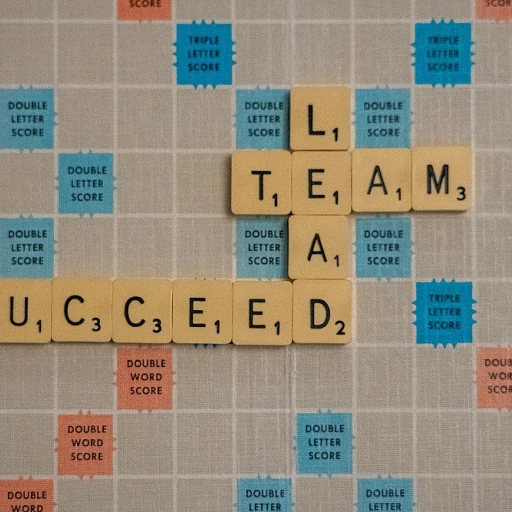
Understanding the Role of an Instructional Coach
Grasping the Core of Instructional Coaching
When embarking on the journey to hire an instructional coach, it's essential to first grasp the core responsibilities and objectives of this vital role within a school district. Understanding what instructional coaching entails will help set realistic expectations and foster effective collaboration. Instructional coaches play a pivotal role in professional development by supporting teachers through a variety of teaching strategies. Their primary aim is to enhance learning experiences and promote effective teaching practices. These coaches work closely with teachers to refine skills, develop new strategies, and incorporate instructional strategies that cater to adult learning. An instructional coach acts as a bridge between teachers and administration, ensuring that best practices are not only discussed but also implemented. They are instrumental in fostering professional learning communities that support teachers in long-term professional growth and development. The responsibilities encompass acting as a mentor, providing insights into decision making and problem-solving while tailoring approaches to the specific needs of the school district. Through instructional coaching, schools can elevate their teaching methods, ultimately benefiting the broader educational community. It's also important to appreciate the value of an instructional coach in creating a supportive atmosphere where teachers feel confident to explore innovative methods, fostering relationships with teachers that are built on trust and mutual respect. For more insights into understanding approaches like trauma-informed motivational interviewing, visit our blog on trauma-informed motivational interviewing. This resource will offer further context on supportive practices that can strengthen the instructional coach's role in your institution.Key Competencies to Look For
Identifying Critical Competencies in an Instructional Coach
When embarking on the process of interviewing for an instructional coach, it's vital to zero in on the core competencies that mark an effective coach. Instructional strategies and teaching methods form the backbone of this role, but there are other crucial skills to consider as well.- Professional Development Expertise: An instructional coach should exhibit a comprehensive understanding of professional learning. They should be able to articulate how they support teachers in diverse learning environments and drive long-term improvement. Their capability to facilitate adult learning, alongside promoting training and development, will help in elevating teaching practices.
- Decision-Making Abilities: This role often requires making quick, informed decisions that impact the whole school district. A candidate's ability to demonstrate decision-making skills through past experiences can offer insights into how they might handle future challenges and contribute to instructional change.
- Effective Communication and Relationship-Building: One of the critical traits to look for is the ability to build solid relationships with teachers and other staff. An instructional coach must be able to foster a collaborative environment that supports mentors and coaches alike. Their communication style should make all educators feel valued and understood.
- Strong Problem-Solving Skills: Instructional coaches often handle complex situations requiring keen problem-solving abilities. Interview questions designed around behavioral assessments can provide a window into their thought process and problem-solving approach. This is essential for ensuring they can manage the day-to-day intricacies of the school setting.
- Focus on Best Practices and Innovation: Candidates should have a grasp of evolving best practices in teaching and coaching. Coaches who continually seek to learn and integrate new instructional methods undeniably enrich the district’s teaching strategies and overall objectives.
Crafting Effective Interview Questions
Formulating Thoughtful and Relevant Queries
In the realm of instructional coaching, the way interview questions are crafted can significantly determine the effectiveness of the hiring process. When interviewing candidates for the role of an instructional coach, crafting smart, insightful questions is as crucial as understanding the role’s requirements and key competencies. These queries will help reveal not only the candidate's experience and expertise but also their approach to instructional strategies, decision-making skills, and ability to support teachers in a school district. To start, it’s essential to focus on questions that delve into the candidate's specific experiences with instructional coaching. You can ask them to describe a time when they implemented a professional development initiative and its impact on teaching and learning within a district. This allows candidates to showcase their practical expertise and offers a glimpse into how they apply coaching principles in real-world scenarios. Additionally, consider posing questions about how they tailor coaching methods to align with the diverse needs of teachers. This will provide insight into their ability to foster effective relationships with teachers and promote adult learning through instructional coaching. Understanding the dynamics of various educational environments is vital for any coach, making such inquiries pivotal during the interview process. Another effective question could revolve around the implementation of professional learning practices. Ask candidates for examples of how they encouraged the integration of collaborative teaching strategies across different school settings. Their answer will not only demonstrate their teaching strategies aptitude but also offer an understanding of their ability to empower teachers towards long-term improvement. For more on mastering the intricacies of such educational strategies, you can refer to mastering math lessons like a pro. Finally, don't forget to inquire about how candidates handle challenges and setbacks in instructional coaching. Presenting a scenario where they had to adjust their coaching style to effectively support teachers within a complex learning environment can reveal their problem-solving skills and adaptability, both of which are imperative for fostering continuous improvement in school settings.Evaluating Experience and Expertise
Evaluating Depth of Experience
When interviewing an instructional coach, it's crucial to delve into their experience and expertise. This goes beyond just the number of years they've spent in the field. Understanding their journey through various teaching and coaching roles can provide insights into their adaptability and growth. Consider asking questions that explore the breadth of their experience with different teaching strategies and school settings.
Understanding Their Impact
One of the key aspects of evaluating an instructional coach's experience is understanding the impact they've had in previous roles. Ask them to share specific examples of how their coaching has led to improved teaching practices or enhanced student learning outcomes. This will help you gauge their effectiveness and the value they can bring to your school district.
Exploring Professional Development
Instructional coaches should be committed to their own professional learning. Inquire about the professional development opportunities they have pursued and how these have influenced their coaching practices. This can include workshops, certifications, or even self-directed learning initiatives. Their dedication to continuous learning will reflect their ability to support teachers in their professional growth.
Assessing Problem-Solving Skills
Experience often translates into refined problem-solving skills. During the interview, pose questions that require the candidate to demonstrate their decision-making process in challenging situations. This can include scenarios where they had to navigate complex relationships with teachers or implement new instructional strategies. Their responses will reveal their ability to think critically and adapt to various challenges.
Evaluating Long-Term Vision
Finally, it's important to assess the candidate's vision for their role as an instructional coach. Ask them about their long-term goals and how they plan to contribute to the school district's success. Their vision should align with the district's objectives and demonstrate a commitment to fostering a collaborative and supportive learning environment.
Behavioral Questions to Assess Problem-Solving Skills
Behavioral Query Crafting
When preparing for an interview with an instructional coach, it's instrumental to include behavioral questions that delve deep into their problem-solving abilities. This approach allows the interviewer to assess how a candidate applies their skills and knowledge in actual situations — a crucial aspect, especially in the dynamic environment of teaching and learning. Behavioral questions should be designed with a focus on real-life scenarios that an instructional coach might face in a school district. These can include challenges such as improving school practices, supporting teachers in implementing new instructional strategies, or resolving conflicts within the teaching team. Consider asking questions like:- "Can you describe a time when you had to help a teacher improve their teaching strategies? What steps did you take, and what was the outcome?"
- "Tell us about a situation where you had to make a quick decision in a coaching role that impacted a teacher's professional development. How did you ensure it was the best choice?"
- "Explain an instance when you had to facilitate collaboration among teachers from diverse backgrounds. What strategies did you employ to enhance their working relationships?"
Assessing Cultural Fit and Collaboration
Evaluating Compatibility and Teamwork in the District Context
In an interview for the role of an instructional coach, one essential aspect to consider is how well the candidate aligns with the culture and values of the school district. This is crucial as instructional coaches often work closely with teachers, school administrators, and professional development teams. Evaluating cultural fit involves more than simply assessing professional skills; it requires understanding the candidate’s ability to foster positive relationships and collaboration.- Understand the School District Culture: Ask candidates about their experiences working in environments similar to your district. This will help determine if their teaching strategies and instructional practices align with the district’s values and expectations. Candidates who have a track record of adapting to various educational cultures can be valuable assets.
- Collaboration and Teamwork Approach: Coaches need to work with teachers and other staff to support instructional goals. Ask questions that reveal the candidate's approach to teamwork and how they successfully navigate challenges in collaborative settings. Effective questions might include asking for examples of past experiences where they contributed to team success or resolved conflicts amicably.
- Adaptation to Change: With the ever-evolving educational landscape, adaptability is a key skill. Probe into the candidate's experiences with adapting to new instructional strategies or curricular revisions. This insight into their flexibility and adaptability will help you gauge their ability to thrive in a dynamic district environment.
- Communication and Relationship-Building Skills: Given the role’s emphasis on support and professional learning, strong communication skills are vital. Ask questions that focus on the candidate’s ability to build and maintain relationships with teachers and staff. Their answers will reveal how they foster trust and motivate teachers to embrace new methodologies.
- Commitment to Long-Term Development: Finally, assess the candidate’s commitment to continuous growth not only for themselves but also in facilitating the professional advancement of the teachers they will coach. This long-term vision is essential in fostering a culture of sustained development within the district.













